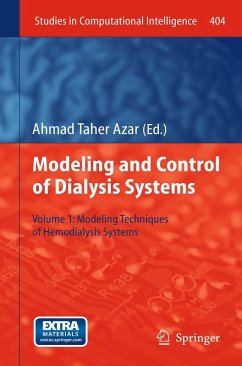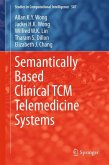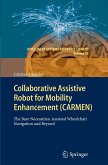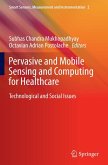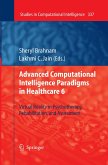The book, to the best of the editor's knowledge, is the first text of its kind that presents both the traditional and the modern aspects of 'dialysis modeling and control' in a clear, insightful and highly comprehensive writing style. It provides an in-depth analysis of the mathematical models and algorithms, and demonstrates their applications in real world problems of significant complexity. The material of this book can be useful to advanced undergraduate and graduate biomedical engineering students. This text provides an important focus on helping students understand how new concepts are related to and rely upon concepts previously presented. Also, researchers and practitioners in the field of dialysis, control systems, soft computing may benefit from it. The material is organized into 32 chapters.
This book explains concepts in a clear, matter-of-fact style. In order to make the reader aware of the applied side of the subject, the book includes:
Chapter openers with a chapter outline, chapter objectives, key terms list, and abstract.
Solved numerical examples to illustrate the application of a particular concept, and also to encourage good problem-solving skills.
More than 1000 questions to give the readers a better insight to the subject.
Case studies to understand the significance of the joint usage of the dialysis modeling and control techniques in interesting problems of the real world.
Summation and deepening of authors' works in recent years in the fields related. So the readers can get latest information, including latest research surveys and references related to the subjects through this book.
It is hopedthat through this book the reader will:
Understand the fundamentals of dialysis systems and recognize when it is advantageous to use them.
Gain an understanding of the wide range of dialysis modeling techniques
Be able to use soft computing techniques in dialysis applications.
Gain familiarity with online systems of dialysis and their applications.
Recognize the relationship between conceptual understanding and problem-solving approaches.
The editors would like to take this opportunity to thank all the authors for their contributions to this textbook. Without the hard work of our contributors, this book would have not been possible. The encouragement and patience of series Editor, Thomas Ditzinger is very much appreciated. Without his continuous help and assistance during the entire course of this project, the production of the book would have taken a great deal longer.
This book explains concepts in a clear, matter-of-fact style. In order to make the reader aware of the applied side of the subject, the book includes:
Chapter openers with a chapter outline, chapter objectives, key terms list, and abstract.
Solved numerical examples to illustrate the application of a particular concept, and also to encourage good problem-solving skills.
More than 1000 questions to give the readers a better insight to the subject.
Case studies to understand the significance of the joint usage of the dialysis modeling and control techniques in interesting problems of the real world.
Summation and deepening of authors' works in recent years in the fields related. So the readers can get latest information, including latest research surveys and references related to the subjects through this book.
It is hopedthat through this book the reader will:
Understand the fundamentals of dialysis systems and recognize when it is advantageous to use them.
Gain an understanding of the wide range of dialysis modeling techniques
Be able to use soft computing techniques in dialysis applications.
Gain familiarity with online systems of dialysis and their applications.
Recognize the relationship between conceptual understanding and problem-solving approaches.
The editors would like to take this opportunity to thank all the authors for their contributions to this textbook. Without the hard work of our contributors, this book would have not been possible. The encouragement and patience of series Editor, Thomas Ditzinger is very much appreciated. Without his continuous help and assistance during the entire course of this project, the production of the book would have taken a great deal longer.
From the reviews:
"This is the first volume of a two-volume set that provides an extensive educational resource on the fundamentals of dialysis. ... The book is designed for a number of courses at undergraduate or graduate levels. It is a unique resource for engineers, system analysts, and biomedical researchers that provides specific and practical information about model and control techniques in the field of dialysis. It also could be useful to nephrologists, nurses, and technicians in the dialysis community." (Jon Webb, Doody's Book Reviews, March, 2013)
"This is the first volume of a two-volume set that provides an extensive educational resource on the fundamentals of dialysis. ... The book is designed for a number of courses at undergraduate or graduate levels. It is a unique resource for engineers, system analysts, and biomedical researchers that provides specific and practical information about model and control techniques in the field of dialysis. It also could be useful to nephrologists, nurses, and technicians in the dialysis community." (Jon Webb, Doody's Book Reviews, March, 2013)

